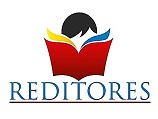Editorial policies
Focus and Scope
Justification
Compared to developments in Europe and North America, administrative and accounting disciplines in Latin America lack a sufficiently visible current of organizational and management thought. However, in recent years, numerous studies have been conducted on the philosophy of economic-administrative sciences, the evolution of organizations in the region, and the contextual factors that affect their development. This opens up the possibility of having a distinctive perspective and an alternative position on these topics, which in turn calls for the creation of academic spaces to develop and refine this line of thought.
Despite the efforts of some institutions, the connectivity and integration among scholars, researchers, and students of organizational sciences have not yielded the expected results. This suggests the need to explore new mechanisms to invigorate this initiative. The need to restore the role of the State as a key player in the management of advanced knowledge becomes evident through the opportunity to bring together at least three public universities from northern, central, and southern Latin America. The aim is to validate the mission-oriented perspective of public education as a social heritage of the people and as a guarantor of academic rigor and excellence in the generation of interdisciplinary knowledge with high social impact.
Likewise, this editorial project aims to promote, strengthen, and consolidate academic networks that support the Latin American perspective in research in the social, economic, and administrative sciences. It seeks to foster friendship, exchange, and inter-institutional cooperation, disseminate the achievements of such efforts, and nurture the cultural identity of academia in the region. In line with these intentions, the editorial design highlights the culture of Indigenous Peoples, a commitment to sustainable development, support for local communities, and the identity of Latin American peoples.
Objectives
- To build a space for intellectual sharing and debate for the Latin American academic community, with the goal of making visible the thought, theory, and scientific production in the field of organizations and related disciplines.
- To contribute to the construction of interdisciplinary knowledge through the analysis and interaction of various bodies of knowledge that intersect in the concept of organization, from a broad, convergent, sustainable, and diverse Latin American perspective.
- To call upon academics, educators, and students to join efforts in developing research on issues relevant to organizations and the socio-economic, political-social, and symbolic-environmental context in which they operate.
- To foster the dissemination and communication of organizational research progress, results, and outputs within the academic context of universities, their undergraduate and graduate programs, faculty and student research groups, and academic events for sharing and debate.
Peer Review Process
Review and Selection
The journal’s reviewers will act as academic peers in the double-blind evaluation process of submitted articles and will issue their assessments using the format provided by the Editorial Board. Upon receipt of a manuscript, the journal’s editors will first check for formal compliance (preliminary review), and if the requirements are met, the article will enter the editorial process and be sent for international review. To ensure transparency, the journal requires three (3) reviewers per article, with at least two (2) of them being from countries different from that of the author(s). This triple, double-blind international review process aims to ensure the greatest impartiality and contribute to building an international network of academic peers. Authors will be informed of the process updates, and the revised version of the articles, based on reviewers’ comments, must not exceed 7,500 words.
Certification
In all cases, the journal will issue a certificate of international academic review to each reviewer per edition and will explicitly mention their names and institutional affiliations in the editorial pages. The reviewers make up the journal’s International Arbitration Committee and may request membership certificates to accredit this experience in their academic portfolios. Researchers interested in becoming reviewers may apply via email.
International Arbitration Committee
The journal’s reviewers will act as academic peers in the double-blind evaluation process of submitted articles, issuing their assessments using the format provided by the Editorial Board. As a transparency policy, three (3) reviewers will be assigned per article, with at least two (2) of them being from countries different from that of the author(s). This approach ensures impartial judgment and contributes to building an international academic peer network. The composition of this committee will be determined by invitation and by areas of expertise, as defined by the Editorial Board. The full list of reviewers is under continuous development; the latest census (2020) recorded 244 scholars from Argentina, Brazil, Chile, Colombia, Costa Rica, Cuba, Ecuador, Spain, Mexico, Peru, Portugal, Puerto Rico, Uruguay, and Venezuela in various areas of economic sciences.
Note: Members of the Scientific, Editorial, and Arbitration Committees may submit their own texts for consideration by the journal, but they may not act as both reviewers and authors in the same edition.
Open Access Policy
This journal provides immediate open access to its content, based on the principle that making research freely available to the public supports a greater global exchange of knowledge.
Digital Archiving Policy
Digital preservation is a set of processes that ensure digital information is backed up and distributed to guarantee long-term access. The digital content of the journal is of high importance, and measures have been established to ensure its long-term availability and preservation. The preservation policy includes the following actions:
- Website Backups: All content is stored in three places. The electronic content is available online to readers. Two backup copies are stored in two separate locations.
- If the Journal Ceases Publication: We intend to publish the journal for many years. However, should rare circumstances force us to cease publication, previously published editions will remain available online for at least 10 years. When necessary and under specific conditions, content will be accessible through the PKP PN preservation network. The LOCKSS program provides decentralized and distributed preservation, perpetual access, and the safeguarding of the original published content. Our journal is included in the list of currently preserved journals by PKP PN.



















